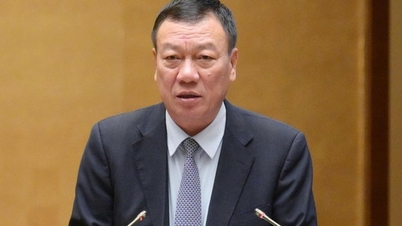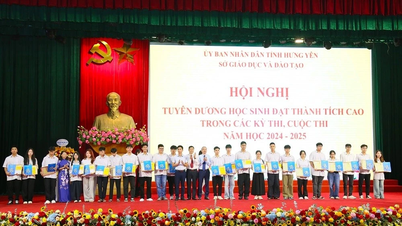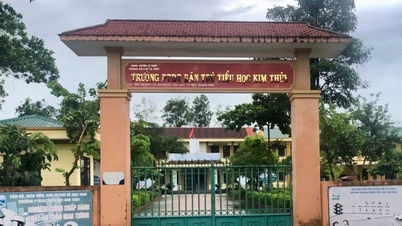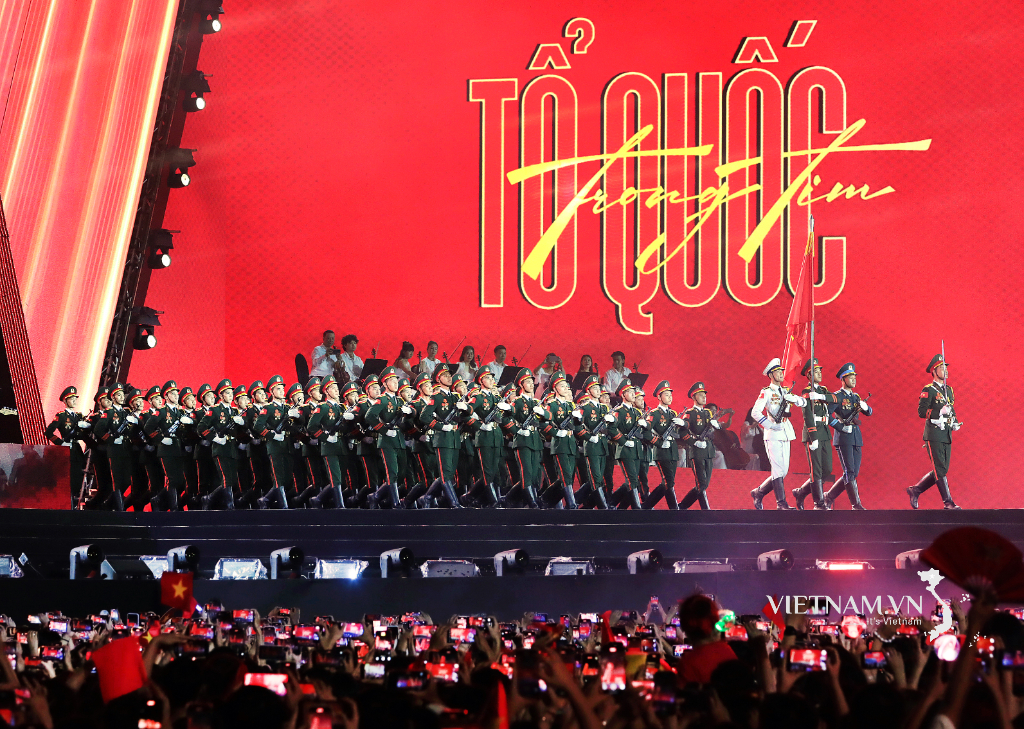The Ministry of Education and Training has just announced a draft Circular regulating the code of conduct for teachers in educational institutions.
Accordingly, the promulgation of the code of conduct for teachers in educational institutions with many new points, specific regulations and requirements on exemplary conduct of teachers, ethical standards, standards of language, behavior, attitude, and conduct of teachers towards learners, colleagues, educational institution managers, parents or guardians of learners and the community.
Do not force students to pay money or materials against regulations.
In particular, the general code of conduct stipulates core rules on strictly complying with policies and guidelines; preserving the qualities, prestige, honor, dignity and ethics of teachers; being dedicated to work; teaching and educating according to educational goals and principles; not taking advantage of the title, title, image of teachers and professional activities to commit illegal acts or personal gain; preventing school violence, building a safe, healthy, friendly, democratic, innovative and creative educational environment...
The general code of conduct also stipulates that teachers must not be indifferent, avoid or conceal violations occurring in educational institutions; must not insult or impose; must not profit from or force parents or guardians or learners to contribute money or goods contrary to the provisions of law; must use appropriate, honest, respectful, friendly, cooperative and sharing language; must preserve and promote the cultural identity of the nation...
Code of conduct for learners stipulates standard, easy-to-understand language, praise or criticism appropriate to the subject and situation; correctly assesses the learner's actual capacity; creates motivation, promotes qualities and capacities, discovers and nurtures learners' talents.
Respecting and treating students fairly; not discriminating between students in any form; not cheating or intentionally falsifying results in enrollment activities and student evaluation... are also rules of conduct that teachers must comply with.
The Code of Conduct for Colleagues stipulates that teachers must use appropriate, honest, and friendly language; respect colleagues, give constructive feedback to colleagues; be willing to share, cooperate, and support colleagues; not insult, divide, or cause internal disunity, etc.
The draft circular also stipulates the code of conduct for educational institution managers and the community... In particular, it stipulates that teachers must not organize or participate in activities that violate the law, violate national security, social order and safety; must not practice or support superstitious activities that cause division in the great national unity bloc...
Implement the motto "teacher is teacher, student is student"
According to the Ministry of Education and Training, the promulgation of the code of conduct for teachers in educational institutions will contribute to improving the quality of teaching and learning in schools, implementing the motto "teachers are teachers, students are students" in terms of ethics, personality, and knowledge; resolutely correcting negativity in education, valuing the honor of teachers, and honoring teachers in society.
On April 16, 2008, the Ministry of Education and Training issued regulations on teachers' ethics. The Ministry of Education and Training stated that after 17 years of implementation, these regulations have revealed many shortcomings, many regulations are no longer suitable, and have not met the requirements for developing the teaching staff in the period of fundamental and comprehensive reform of education and training.
In addition, there are still teachers whose behavior and words lack standards, violate teachers' ethics, significantly affecting the spirit and physical health of students as well as reducing the prestige and image of teachers, causing outrage in public opinion. Therefore, there is a need for a new, appropriate regulation related to teachers' behavior in relationships in teaching and educational activities at educational institutions and in the community.
Source: https://thanhnien.vn/nha-giao-khong-duoc-phan-biet-doi-xu-voi-nguoi-hoc-duoi-moi-hinh-thuc-185250918175205628.htm


![[Photo] The 1st Congress of Phu Tho Provincial Party Committee, term 2025-2030](https://vphoto.vietnam.vn/thumb/1200x675/vietnam/resource/IMAGE/2025/9/30/1507da06216649bba8a1ce6251816820)
![[Photo] President Luong Cuong receives President of the Cuban National Assembly Esteban Lazo Hernandez](https://vphoto.vietnam.vn/thumb/1200x675/vietnam/resource/IMAGE/2025/9/30/4d38932911c24f6ea1936252bd5427fa)
![[Photo] General Secretary To Lam, Secretary of the Central Military Commission attends the 12th Party Congress of the Army](https://vphoto.vietnam.vn/thumb/1200x675/vietnam/resource/IMAGE/2025/9/30/9b63aaa37ddb472ead84e3870a8ae825)
![[Photo] Panorama of the cable-stayed bridge, the final bottleneck of the Ben Luc-Long Thanh expressway](https://vphoto.vietnam.vn/thumb/1200x675/vietnam/resource/IMAGE/2025/9/30/391fdf21025541d6b2f092e49a17243f)
![[Photo] Solemn opening of the 12th Military Party Congress for the 2025-2030 term](https://vphoto.vietnam.vn/thumb/1200x675/vietnam/resource/IMAGE/2025/9/30/2cd383b3130d41a1a4b5ace0d5eb989d)


































































































Comment (0)